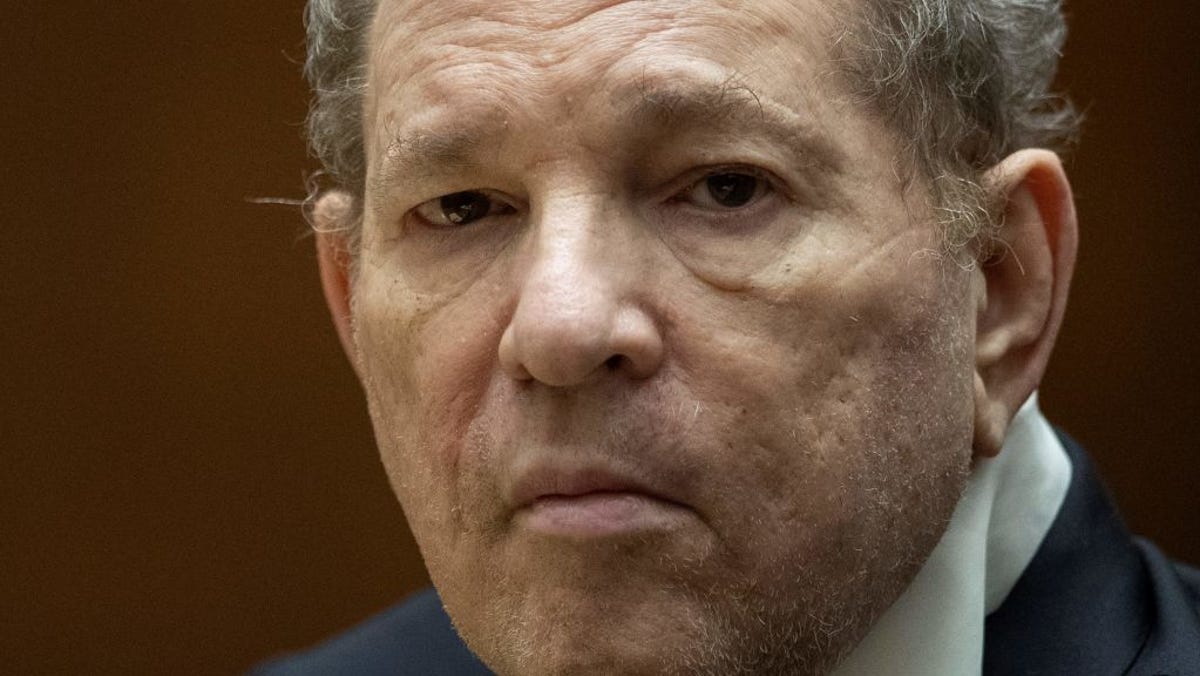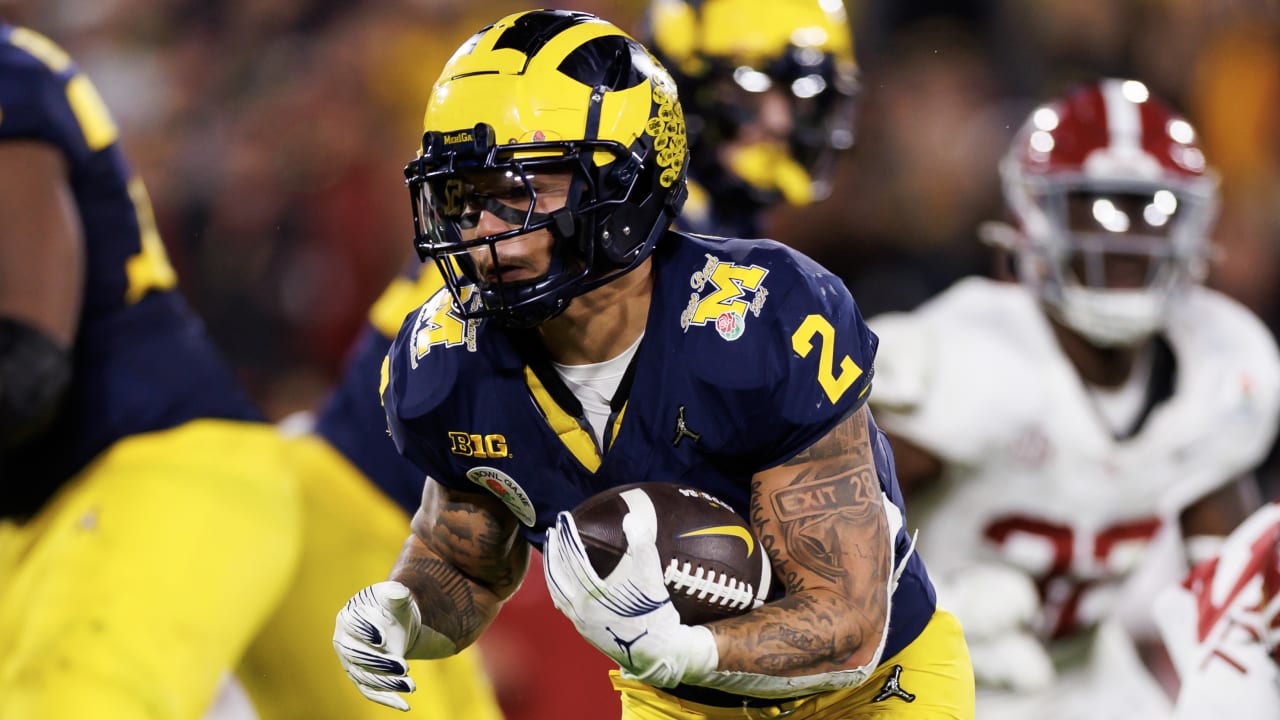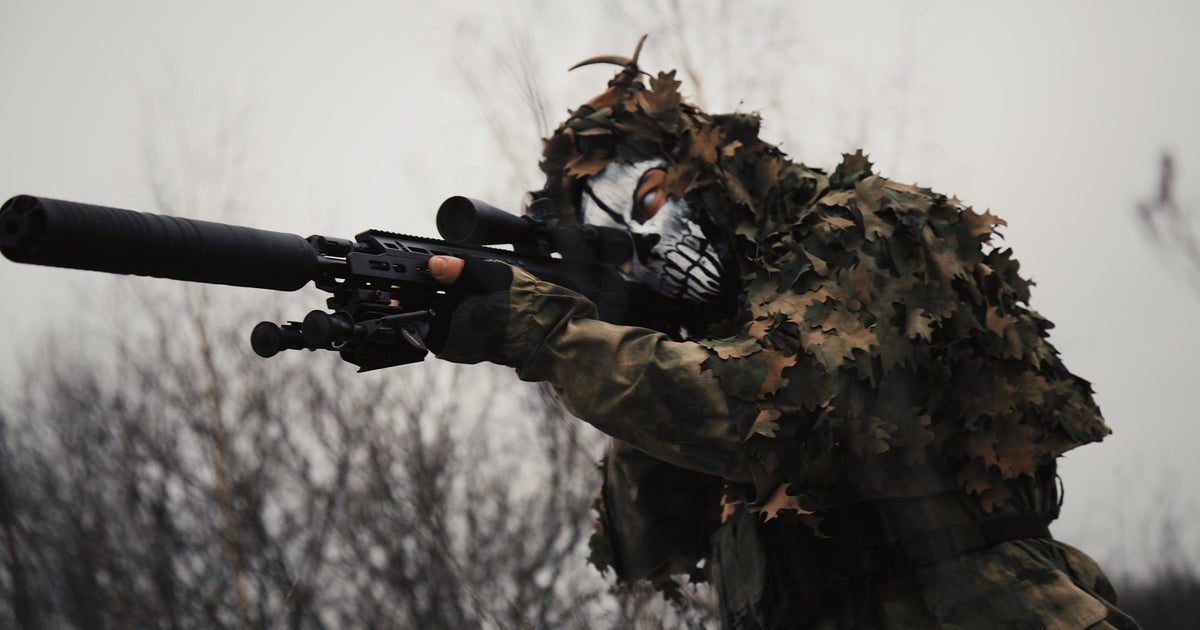The Athletic has live coverage of the March Madness Sweet 16 matchups.
OMAHA, Neb. — Iowa State coach T.J. Otzelberger sets his clock at 4:59 a.m. every day because a lot of people get up in the 5 o’clock hour. “I like the psychology of getting up when there’s a four on the clock,” he says.
Otzelberger heads straight to the Iowa State facility to lift weights and run on the treadmill and is working out by the time his players arrive. Everyone must be at the facility by 6:30 a.m. In June when the players get to campus, Otzelberger takes them to the parking lot and shows them where to park and how — no taking up two spaces — and then how to walk in the building, how to greet people, how to shake hands and make eye contact, how to keep the locker room tidy. He recruits character, but he assumes nothing. To play for Iowa State, you better come in as a ball of clay ready to be molded. And like structure.
At 7 a.m., the entire team eats breakfast together. Practice starts at 7:30 a.m. Another breakfast follows. And every workday ends with another team meeting at 4 p.m., followed by dinner at 4:30. The players all dress alike every day and so do the coaches. They only have two shirts and two pairs of shorts and rotate each day. Mondays is black shirt with red shorts. Tuesdays is red shirt with black shorts. They all wear the same shoes too.
“We’re like GI Joe men, or a Ken doll,” says Micah Byars, the director of basketball operations and man tasked with ordering the gear, which resets every June. “It sounds cultish, when you say it out loud.”
Otzelberger’s favorite word is intentional. “He’s over-the-top detailed,” assistant coach JR Blount says. “There’s a purpose to everything that we’re doing.”
That purposefulness has led to a program that was coming off a two-win season when Otzelberger arrived making three straight NCAA Tournaments and playing in its second Sweet 16 in three seasons on Thursday, when the No. 2 seed Cyclones face third-seeded Illinois. This season is the real fruit of the labor, of the intent, from the nothing-is-left-to-chance mentality of the head coach. His is the best defensive team in college basketball, and if you polled college coaches on the hardest-playing teams in the country, one of two answers would come back: Houston and Iowa State.
This was Otzelberger’s edict when he got the job. He was entering a league with Hall of Fame coaches with higher-profile rosters. He wasn’t going to out-coach anyone, he’d say then. The message was clear: We don’t have what they’ve got, so we have to play harder than them.
The way Otzelberger gets them there is through clear marching orders and a vision for exactly how he wants it to look. And to create his utopia — which for him, was always going to be in Ames, Iowa — he needed to go somewhere else and fail when barely anyone was watching.
When Fred Hoiberg left Iowa State in June 2015 to become the head coach of the Chicago Bulls, Otzelberger wanted athletic director Jamie Pollard to promote him to head coach. Pollard and Otzelberger had grown close since Greg McDermott hired him in 2006.
They were both from Wisconsin and bonded right away. Otzelberger saw Pollard as a mentor and often visited him in his office for big-picture discussions. Otzelberger used to devour books on leadership and culture, and he wanted to know how to take what you read in theory and apply it in real life.
“He was always curious about things that I was making decisions on in our department, and the why,” Pollard says. “Just trying to understand, not necessarily the business, but understanding the ‘why’ about the business.”
Pollard watched the way Otzelberger worked closely — in recruiting, with players, with fans and donors — and saw a future leader. When McDermott left for Creighton in 2010, Pollard went straight to Minneapolis to recruit Hoiberg to become the next coach. Hoiberg told him the one thing he didn’t have a handle on was recruiting. Pollard called Otzelberger that night from Hoiberg’s driveway and told him not to go with McDermott to Omaha but to stay on with Hoiberg. He helped the ISU legend build a roster that made six straight NCAA Tournaments.
By the time the job opened again in 2015, Otzelberger thought he was ready. He had strong relationships with the returning core, and he saw himself as the best person to lead them. Part of Pollard wanted to hand Otzelberger the keys, but he thought, “Has this program risen to a level that we should be hiring somebody that’s been a head coach?” He wrestled with the decision, ultimately hiring Steve Prohm from Murray State.
“That really probably challenged our friendship,” Pollard says. “In some ways, it strengthened it, because I was able to just be totally honest with him and say, ‘I think you’re ready to be head coach, but most people don’t get to start with a potential Final Four team.’”
Otzelberger’s pride was hurt, but he stayed on as a member of Prohm’s staff. The next year Pollard told his friend it was time to go get experience as a head coach, and he landed the job at South Dakota State. Seven games into his tenure there — with a 1-6 record — he called Pollard essentially telling him he was right.
“Anybody who’s doing it for the first time is gonna make mistakes. You’re gonna learn on the job,” Otzelberger says. “When you’re in a place like South Dakota State, and you make mistakes, they’re not on national TV. You can build your philosophy, a program and do things more in a bunker.
“I went in there and wanted to be more like Tom Izzo and coach really hard. Defensive-minded and physical rebounding. And my team was a little bit different than that. They were more of a flow offense group.”
He leaned on what he’d learned about offense from Hoiberg and McDermott, because that type of style fit the Jackrabbits, who were the second-best shooting team in college basketball his third and final season at SDSU. Otzelberger also reviewed the film and watched himself on the sideline and realized he was too emotional. Immature. He was arguing too many calls and reacting to every little thing, and his team was following his lead. He decided that you’d never see him go after a referee again.
“It was really a reflective time for me,” Otzelberger says. “I felt like a hypocrite and that I needed to change more than our team did. And so I really tried to change my approach and focus on what we will do, what we can be, what our strengths were, and how I can lean into those as opposed to being frustrated or upset by the things that we were not.”
The Jackrabbits won six of their next seven games, won the Summit League tournament and made the NCAA Tournament. His next two teams won the regular-season championship behind mid-major superstar Mike Daum, which led UNLV to hire him in 2019 with a recommendation from Pollard.
Otzelberger had just so-so success in Las Vegas over two seasons — a 29-30 record — but that didn’t concern Pollard. He had kept close tabs on Otzelberger, traveling to Brookings, S.D., for several family trips to watch South Dakota State games and then talking to him regularly when he was at UNLV. And when Pollard needed a coach again in 2021, he had no hesitation despite Otzelberger coming off a losing season.
“Because I could see what he was trying to do there,” Pollard says. “He had to change the culture. The culture there was kind of still the (Jerry) Tarkanian culture. They had an image of what they thought they were, and that’s not what they needed to do to be successful.”
T.J. Otzelberger, shown here talking to Curtis Jones, likes to meet often with his players. (Chris Gardner / Getty Images)
Shortly after Otzelberger got to Iowa State, Xavier Foster hit the transfer portal. Iowa State sports information director Matt Shoultz was tasked with writing a release. Shoultz sent it over to Otzelberger before hitting publish. He got a call.
“Is this the best we can do?” Otzelberger asked.
Shoultz was taken aback. Had he butchered this?
“No, no, no,” Otzelberger said. “I trust you. And if you tell me this is the best we can do, then great. This is the best we can do.”
“He doesn’t micromanage anything,” Blount says. “He expects your best, but it’s always in terms of just give everything you have. He’s not going to be disappointed if that 100 percent leads to failure, but he also just expects you to give that.”
This is how Otzelberger lives his life. It’s the classic case of someone who doesn’t believe he’s as talented and has to try harder than everyone else. When he would work basketball camps as a young coach, he’d be the first to the gym and last one to leave. He wants to leave the best impression with everyone.
“You’d think he’s always going to see the president of the United States,” Blount says.
“There’s nobody I’ve ever met in my entire life, in athletic administration, anywhere, that follows up and gets back to people like he does,” Pollard says. “If I’ve heard it once, I’ve heard it 100 times. People will say they met him, and then like a week later, there’s a handwritten note and something sent to them.”
Pollard says this after a dinner the night before with Paul Maass, an ISU graduate and the CEO of Scoular, a billion-dollar agricultural business based in Omaha. Years ago, Maass had reached out to Pollard about one of his son’s high school basketball teammates. Pollard had Otzelberger follow up by phone, and though Otzelberger said the Cyclones didn’t have a spot for him, he gave Maass a full scouting breakdown of the kid’s game. A week later, Maass got a package with two Iowa State sweatshirts and handwritten note from Otzelberger thanking him for bringing the player to his attention.
A few years later, Maass was at an Iowa State football game when a friend introduced him to Otzelberger. Maass reminded him of their conversation years earlier and thanked him. The next week he got a SDSU golf polo in the mail and another handwritten thank-you note.
“You’re like, if he’s this thoughtful with me, just a random run-in, I cannot imagine being a parent of somebody that’s being recruited and just how wonderful that would feel,” Maass says. “It’s mind-blowing.”
This is how Otzelberger gets his players to play so hard. They see how much he pours himself into every small task. When they show up in the morning, for example, he’s not just going through a casual workout. “He’s trying to throw around as much weight as possible,” Byars says. “That’s why his arms look like that.”
Between practice and team dinner, Otzelberger spends the majority of his time meeting with his players. They always know where they stand, because he tells them. Tre King gives an example. When he became eligible midway through last season after a mid-year transfer from Georgetown, he was trying to show everything he was capable of right away. He says Otzelberger sat him down and told him to focus on the little things. Then once he got those down, they could add to his game.
“He has tremendous confidence in us as players,” King says. “He always is just pointing out our strengths and making sure we’re always being in line with our strength. He’s gonna give his all for us and give us energy on the court. We just gotta reciprocate.”
Iowa State’s staff meets every day at noon, and most of the discussion surrounds the psychology of the team and what each player needs from the coaches. Last month when freshman Milan Momcilovic was struggling, Otzelberger watched a lot of film with him. They went to lunch twice and barely talked basketball, except for Otzelberger stressing to Momcilovic that he still had confidence in him.
“It’s important to spend time with them outside of basketball, even more so because they’re going through a lot of things on their mind, a lot of stresses,” Otzelberger says. “It’s important to keep reconnecting we’re just two guys who believed in each other, who care about each other, who are doing the hard work every single day and have each other’s back. I want them to to know that I’m taking that time, that they’re important.”
After a 10-game stretch when Momcilovic averaged 6.1 points and went scoreless in a loss at Kansas State, he has now scored in double figures four straight times, including 29 points in the Cyclones’ first two NCAA Tournament games.
𝙉𝙖𝙩𝙞𝙤𝙣𝙖𝙡 𝙁𝙞𝙣𝙖𝙡𝙞𝙨𝙩!
📰: https://t.co/86P4gzVkjm#Cyclones | #C5C pic.twitter.com/714t6qSm5t
— Iowa State Men’s Basketball (@CycloneMBB) March 25, 2024
How does Otzelberger make so much time?
The simplicity of a day-to-day routine minimizes the clutter. He’s regimented and eliminates all distractions. He’s not on any social media platforms.
Every minute matters. So much so that when you go to lunch with Otzelberger, you better know what you’re going to order ahead of time. And when the server comes back to see how everything’s going, Otzelberger is handing over his credit card.
He’s made his Cyclones into similar creatures of habit. “Your whole day is scheduled for you,” sophomore guard Demarion Watson says. “You just have to show up.”
From June 12 on, players do the same practice drills every day. He has five pillars he preaches daily: gratitude, enthusiasm, toughness, integrity and unity. The T-shirts he has printed for the coaches have one of those culture words written on the back. Every scouting report is one page front and back. Every game, three things go up on the board: dictate on defense, make the right play on offense and rebound. The game plan? Keep the ball out of the paint on defense and get to the paint on offense.
On the sideline, Otzelberger can keep his cool, like he promised years ago, because there’s no reason to panic when you’re prepared. “Nothing’s a big deal because he’s already thought about it and processed it before before it happens,” Blount says.
Like many assistant coaches, he spent years planning how he would run a program when he got his shot. His father was in the airborne forces of the U.S. Army, which somewhat explains the militaristic approach. In the Army, however, there are ranks. Otzelberger considers everyone on equal footing, which is why he dresses just like his assistants.
“Any standard that a player or coach is held to, I’m held to the highest standard,” he says. “And so if I’m not willing to do all those things — wear the same things and follow the code — then what my actions are really saying is it’s not important enough for me to do it. And I want everybody in our program to know that everything I’m asking of them, I’m asking of myself, but usually far greater.”
Uniformity is what wins.
For info on tickets, click here.
(Top photo: Charlie Riedel / AP)

Christine Lake is a sports fanatic who lives and breathes athletics. With an extensive background in sports journalism, he covers everything from major league championships to grassroots sports events. When she’s not on the field or at the stadium, you’ll find Christine coaching youth sports teams.








